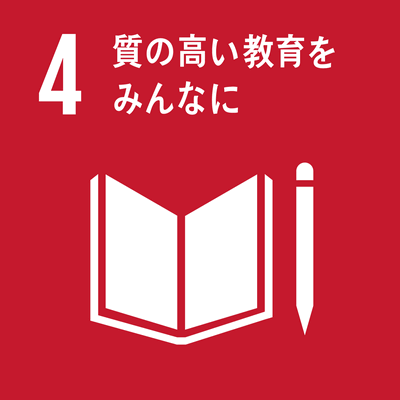シラバス表示
シラバスの詳細な内容を表示します。
→ 閉じる(シラバスの一覧にもどる)
科目の基本情報
| 開講年度 | 2021 年度 | |
|---|---|---|
| 開講区分 | 教育学部・教科に関する専門科目(A類)・英語 | |
| 科目名 | 英語文学 | |
| 英語文学 | ||
| Literature in English | ||
| 受講対象学生 |
教育学部 他類の学生の受講可 学部(学士課程) : 3年次, 4年次 70-71 期生 |
|
| 卒業要件の種別 | 選択 |
|
| 授業科目名 | 英米文学講義I | |
| えいべいぶんがくこうぎI | ||
| Lecture on English and American Literature I | ||
| 単位数 | 2 単位 | |
| ナンバリングコード | educ-engl-LITR3014-001
|
|
| 開放科目 | 非開放科目 | |
| 開講学期 |
前期 |
|
| 開講時間 |
木曜日 7, 8時限 |
|
| 授業形態 |
対面授業 * 状況により変更される可能性があるので定期的に確認して下さい
「オンライン授業」・・・オンライン会議ツール等を利用して実施する同時双方向型の授業 |
|
| 開講場所 | 教育学部1号館 | |
| 担当教員 | ロバート・スターク | |
| Robert Stark | ||
| SDGsの目標 |
|
|
| 連絡事項 | * 状況により変更される可能性があるので定期的に確認して下さい |
|
学修の目的と方法
| 授業の概要 | Time & Narrative: An Introduction to Speculative Fiction |
|---|---|
| 学修の目的 | This course will introduce basic narratological concepts, applicable in principle to all literary texts, by considering the special case of time travel stories. A primer in popular genre fiction, the course aims to grapple with the relationship between the philosophy of time and imaginative literature in light of two cardinal developments in twentieth century thought: (1) The so-called ‘linguistic turn’ in philosophy, which slowly gave rise to the dedicated study of the logic, principles and practices of narrative representation, in what Tzvetan Todorov termed ‘Narratology’ (1969). (2) The revolution in physics and popular culture inaugurated almost exactly one hundred years ago when Albert Einstein completed the final version of his General Theory of Relativity and published a book about both Special and General theories for a popular audience, transforming the formal and thematic possibilities of narrative literature as surely as his theories transformed Newtonian physics. |
| 学修の到達目標 | The learning aims of this course are: to familiarize students with the generic and formal features of English Literature; to develop competencies in the more remote vocabularies, and syntactical variations, of literary English(es); to distinguish character, voice, and “tone” of expression in written works; to enhance students’ close-reading skills; to learn and apply the technical and critical concepts of literary studies; to practice analytical, interpretative and argumentative strategies in oral and written English; to learn to hear literature, to listen for its unique and expressive sounds as well as its sense; to trace the differences and similarities of different national, racial and ethnic forms of literature; but above all, and selfishly, to learn to ENJOY English literature. |
| ディプロマ・ポリシー |
|
| 成績評価方法と基準 | Class Participation: 20% Regular Quizzes: 20% Presentation: 20% Midterm: 20% Examination: 20% |
| 授業の方法 | 講義 |
| 授業の特徴 |
教員と学生、学生相互のやり取りが、ほぼ英語で進められる授業 |
| 授業改善の工夫 | |
| 教科書 | Students will have to purchase (or otherwise obtain) the two novels: The Time Machine, and Time’s Arrow. Other course materials will be made available electronically or distributed in hard-copy during class. |
| 参考書 | |
| オフィスアワー | |
| 受講要件 | |
| 予め履修が望ましい科目 | |
| 発展科目 | |
| その他 |
授業計画
| MoodleのコースURL |
|---|
| キーワード | |
|---|---|
| Key Word(s) | Time & Narrative |
| 学修内容 | 1. Course Introduction 2. H.G. Wells, The Time Machine 3. H.G. Wells, The Time Machine 4. Ray Bradbury, “A Sound of Thunder” 5. Michael Moorcock, Behold the Man 6. Michael Moorcock, Behold the Man 7. Chris Marker, La Jetée 8. ***Mid-term Examination*** 9. Robert Heinlein, “All You Zombies” 10. Robert Heinlein, “By His Bootstraps” 11. Robert Heinlein, “By His Bootstraps” 12. Samuel Beckett, Krapp’s Last Tape 13. Martin Amis, Time’s Arrow 14. Martin Amis, Time’s Arrow 15. Martin Amis, Time’s Arrow Exam |
| 事前・事後学修の内容 | |
| 事前学修の時間:45分/回 事後学修の時間:45分/回 |
